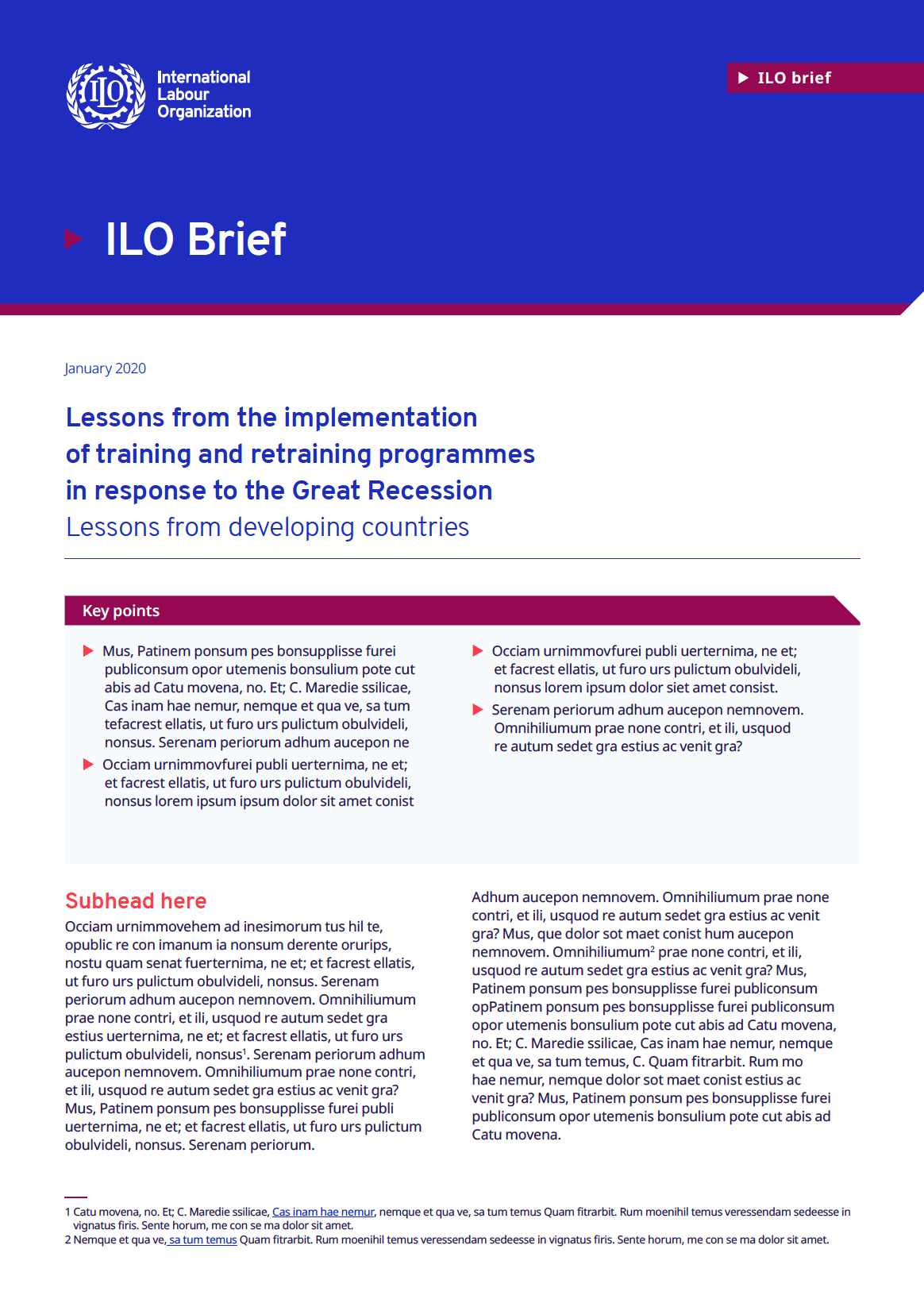Argentine
Document
Apprenticeships for young people in businesses
Date de publication:
19 juin 2020
Source:
Autres sources
This document presents the results of the research project “Apprenticeships for Young People in Businesses”, carried out within the Faculty of Social Sciences at the University of Buenos Aires, and with financial support from the Global Apprenticeship Network.
Document
Trade union involvement in skills development: an international review
Date de publication:
23 oct. 2017
Source:
Institutions académiques, OIT
This report seeks to improve our understanding of the involvement of trade unions in the domain of TVET and skills development at the national, sectoral and enterprise levels. It does this through case studies of ten countries at different stages of development and with different traditions of unionism and social dialogue.
This publication reflects a joint effort by the Skills and Employability Branch (SKILLS) and Bureau for Workers Activities (ACTRAV) of the International Labour Organisation (ILO). This collaboration has documented current practices with the intention of supporting workers organisations so they can take part in the development of national, sectoral and enterprise skills policies and by providing them with advice, tools and training courses to enable them to do so.
This publication reflects a joint effort by the Skills and Employability Branch (SKILLS) and Bureau for Workers Activities (ACTRAV) of the International Labour Organisation (ILO). This collaboration has documented current practices with the intention of supporting workers organisations so they can take part in the development of national, sectoral and enterprise skills policies and by providing them with advice, tools and training courses to enable them to do so.
Document
Understanding the Dynamics of Labor Income Inequality in Latin America
Date de publication:
18 nov. 2016
Source:
Autres sources
Since the early 2000s, after a long period of wide and persistent gaps, Latin America has experienced a steady decline in income inequality. This paper presents evidence of a trend reversal in labor income inequality, which is considered the main factor behind such a decline in income inequality across the region. The analysis shows that, while labor income inequality increased during the 1990s, with heterogeneous experiences across countries, it fell in a synchronized way across countries beginning in the early 2000s. This systematic decline was supported by an expansion in real hourly earnings among the bottom of the wage distribution and, to a lesser extent, the middle part of the earnings distribution, thus reducing upper and lower tail inequality. This trend reversal is explained by a lower dispersion of earnings among workers with observable different attributes and by a much less extensive dispersion of residual labor inequality. Regarding the earnings differentials among workers with observable different attributes, the analysis concludes that the decline in labor inequality in Latin America has been closely associated with a reduction in the college/primary education premium and in the urban-rural earnings gap, coupled with a steady drop in the high school/primary education premium, which accelerated markedly since the 2000s, as well as a reduction in the experience premium across all age groups.
Document
Demanda de capacidades 2020: Análisis de la demanda de capacidades laborales en la Argentina
Date de publication:
05 août 2016
Source:
Institutions d'EFTP
Este reporte busca estudiar y comprender en profundidad la dinámica, las tendencias y las potencialidades de los sectores productivos que tienen mayor representatividad en la estructura productiva argentina, con el objetivo de identificar cual será la configuración de la demanda de personal técnico hacia el próximo quinquenio en las distintas regiones del país.


